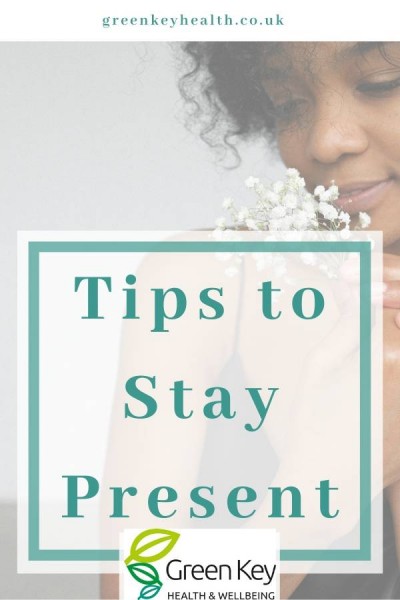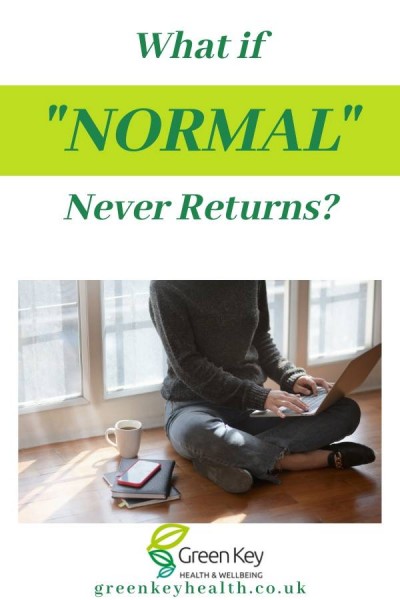
The current situation driven by the COVID19 pandemic has forced each one of us to change our normal behaviour patterns. For some causing chaos and disruption before finding the way to live within your changed environment. For others the same situation might be bringing the peace and space so often longed for in the busyness of daily life, perceiving this pandemic as a gift.
At this time, it is likely that many are finding grounding difficult. There is family to balance with working from home as well as all the other things to do that these changes have brought, which before either never existed or was taken care of by someone else. Finding a new daily regime, an approach to “normalise” all “to-do’s” both for work and home might be proving difficult, resulting in frustration, a sense of being lost, as well as anxiety because there is no social contact and a friendly nudge, ad hoc “drop in” of a colleague or friend with a hug to remind you that “it is alright and will be alright”.
For those who are finding grounding difficult, what can you do to bring normality into your world?
Looking for the same normality, the way it was before is only going to cause anxiety, as that no longer exists. Therefore, living in the past means you are missing the present moment. Wishing for the end to this lockdown also means you are pushing away the present moment. It is human tendency to live in the past or future both of which cause stress and anxiety as we realise what we have not done, what we should have or ought to have done, and in these times the future only draws attention to what we planned to do, but now cannot do, emphasising the disappointment, frustration and possibly even hurt.
There are many activities that can help you and your family to be present, and stay in the present moment:
 Deep breathing – this can be done at home, or outside when embarking on a walk. The main idea is to stand comfortably, if you can’t stand then do this whilst sitting. Breathe in, hold for a few seconds and then exhale slowly for longer than the in-breath. It is the outbreath that stimulates the para-sympathetic nervous system and it is this system that releases tension and any worry, leaving it behind, enabling you to enjoy the moment. Making deep breathing a regular practice, brings calm and clarity to body and mind. It is also surprising what you start to notice, that before might not have existed.
Deep breathing – this can be done at home, or outside when embarking on a walk. The main idea is to stand comfortably, if you can’t stand then do this whilst sitting. Breathe in, hold for a few seconds and then exhale slowly for longer than the in-breath. It is the outbreath that stimulates the para-sympathetic nervous system and it is this system that releases tension and any worry, leaving it behind, enabling you to enjoy the moment. Making deep breathing a regular practice, brings calm and clarity to body and mind. It is also surprising what you start to notice, that before might not have existed.
Walk mindfully – It does not matter where you are walking. If you have a park or other natural outside area, then choose this over an environment dense with buildings. Tune into your senses by taking one at a time and focusing on the chosen sense. As you walk be present to that sense, noticing what you see, hear or smell in the environment, in the sky, the colours, textures, density, wildlife, plant life and possibly your shadow. Does doing this raise any emotions? Is there a specific emotion? If you find that a particular emotion is dominant, focus on it, acknowledge it and understand what it is connected to. Ask yourself, “How is this emotion serving me? If it is not serving you, thank it and let it go.
Nature’s Effect – On a daily basis spend a minimum of 30 minutes to access the positive, calming effects of nature. Nature however big the expanse has a calming effect. You might only have access to a small garden, a tree or a few window boxes. However, when being present in and with nature it changes your state of being by soothing any anxiety, calming frustrations and equalising a tense or difficult situation. Combined with mindfulness, the effect of nature grows!
Do the same activities with your children - Being outside, walking for walking’s sake, depending on the age, may not be interesting for a child, especially if you have to do it every day? However, when including activities within the walk it can capture their imagination, as well as introducing learning and fun. Deep breathing together and then introducing an exercise around the senses can occupy children in a fun way, whilst doubling up as physical exercise as they run around looking and exploring. For example, the sense might be seeing “Who can be the first person to see a butterfly?” When that butterfly has been spotted, going into its appearance in more detail; the colours, shapes on the wings, number of legs and so on helps increase engagement.
As human beings we seek stability and to a certain extent that encompasses routine. We can adapt fairly quickly when our circumstances change, especially when there is no choice! Our underlying drive to survive comes to the fore, and whilst we might not like the situation, we adapt anyway. What is it that slows this process down, drawing out the pain? On all occasions it is you yourself. You slow or even try to resist the change, desperately hoping that it will go back “as before” and that you can slot in safely and quickly to that norm.
What if that norm is never going to return?
Resisting and swimming against the tide will only lead to frustration, anger and anxiety, making yourself miserable and causing others around you to feel the same. Acceptance is the first stage in moving forward. The current situation is what it is. No one is to blame, no one has a magic bullet and in reality,  no one knows for how long this lockdown will last. Acceptance means to stop fighting, hear and address your emotions openly. Talking them through with someone you can trust, helps in realising there are many others that are experiencing what you feel. Perhaps the way it is, is the way it is meant to be.
no one knows for how long this lockdown will last. Acceptance means to stop fighting, hear and address your emotions openly. Talking them through with someone you can trust, helps in realising there are many others that are experiencing what you feel. Perhaps the way it is, is the way it is meant to be.
Take a helicopter view of the situation and create your new routine and norm. Use the additional time that would have been for travel to invest in yourself, perhaps exercising, de-cluttering and cleaning out areas of your home that have been on your to-do list for too long, meditate, eat breakfast together as a whole family. Put a daily plan in place of things you want to do and do them.
Be disciplined – working from home is not for everyone. Of course, it is easy to be tempted to stay in bed much longer or clean under the kitchen sink. Use a to-do list to structure your day. Schedule time wisely, putting the more difficult tasks and tasks requiring focus into the time when you are at your most productive or into the time when other members of your family are busy.
Social presence – Zoom, Skype, Microsoft Team and other platforms have exponentially grown in use during the last 2-3 weeks as individuals, families and companies use these to hold meetings, check in, discuss problems and so on. These platforms cannot replace the lack of physical contact, but they can bring you closer together with colleagues, friends and family in a way that helps you share, discuss and brainstorm on a scheduled or ad hoc basis. When things return to “normal”, it might be that the use of these platforms underlies new working processes that support flexible working hours, less need for travel and other varied work patterns.
Don’t beat yourself up for not achieving your goals or completing your daily to-do list. In these circumstances it is easy to beat yourself up for not being as productive as you would have been in the office away from the inevitable temptations that working from home provides. Observe your daily patterns and once you have identified where your time goes, put processes in place to minimise those distractions or better still eliminate them all together, thus finding the system that works best for you.
Take regular downtime – If you find yourself getting frustrated or anxious when something is not flowing, take a break for 10 minutes for a cuppa, go outside into the garden, on to the terrace or to the street and do some deep breathing or stretching for five minutes before returning to your work station. Or do something such as taking the rubbish out, which is waiting to be done anyway and can be combined with a few minutes movement and change of air.
This is not a time to be fearful of what is happening or what might happen. It is a time to embrace what this pandemic is presenting, to reflect on how you contribute firstly to yourself, then to your family, friends, workplace, local society and society as a whole. Using that reflection to understand what it is you want to do more of, what you want to do less of and finally what new habits and activities you want to bring into your life to enhance your wellbeing and the wellbeing of those around you?
To book Rachel to speak at your event, please contact Rachel directly at rachel@greenkeypersonaldevelopment.com
New here? I write about how to take a holistic approach to health and well-being, to treat illness and help you be the best you can be. You can read similar blogs here:
Kindness Costs Nothing: Building Healthy Relationships
Reflections on Filling Yourself Up First: Fresh Air Fridays in January
Stay Healthy over Christmas: Tips that Actually Work
How to Boost your Immunity, Naturally
A Day at Weleda – “Committed to the Well-Being of our Planet, our Environment and our People”
Why we are Addicted to Prescription Drugs
Does your Work day Eat into your Lunch Break?
Are you Drinking enough Water?
Do you love Pinterest as much as I do? Please pin any of these graphics!




Add new comment